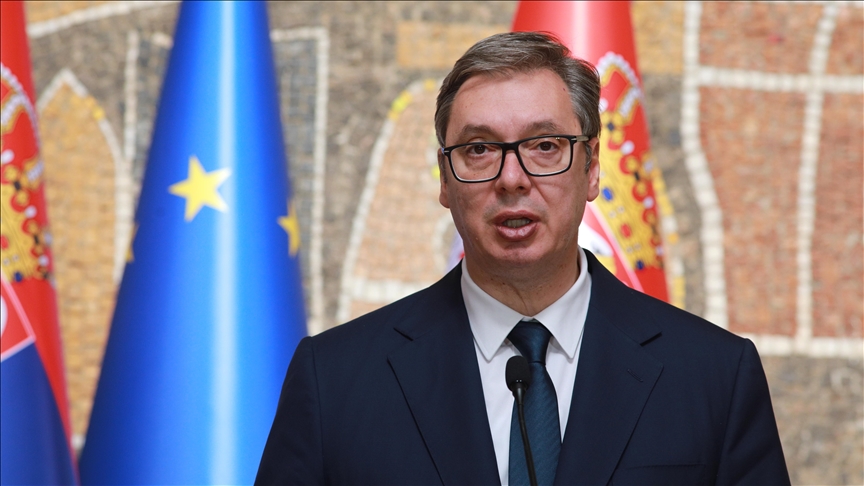Tensions flared in Serbia on Friday as thousands of anti-government protesters rallied in Novi Sad, demanding early elections and the resignation of President Aleksandar Vucic. Police responded with tear gas and stun grenades to disperse demonstrators, marking the latest in a wave of student-led protests across the country.
The unrest stems from the fatal collapse of the Novi Sad train station roof in November, which killed 16 people. The tragedy exposed longstanding concerns over corruption, triggering calls for a transparent investigation and evolving into nationwide demands for political accountability.
While most demonstrations have been peaceful, clashes have erupted in mid-August and again on Friday. According to reports, protesters threw flares and bottles at police, who responded with force near the city’s university campus. President Vucic condemned the protesters, accusing them of attempting to “threaten the stability and security of Serbia” and of trying to “occupy university premises in Novi Sad.” Eleven officers were reportedly injured, and several demonstrators were arrested, with additional arrests expected.
The protests have intensified public pressure on Vucic, whose ruling Serbian Progressive Party (SNS) has been in power since 2012. Despite the resignation of the prime minister and the collapse of his government, Vucic has refused to step down, dismissing calls for early elections and claiming that the demonstrations are part of a foreign plot.
Video footage circulating online has fueled controversy, showing police allegedly beating unarmed protesters and activists reporting assaults while in custody. Authorities, however, have denied allegations of brutality. In response to the protests, Vucic’s party has organized pro-government rallies across Serbia, asserting the state’s authority and promising stability.
The demonstrations highlight deep-rooted political tensions in Serbia, reflecting public frustration with perceived misgovernance and corruption. With protests continuing in Belgrade, Novi Sad, and other cities, the political climate remains volatile, and the coming weeks could prove decisive in shaping Serbia’s leadership and future elections.

